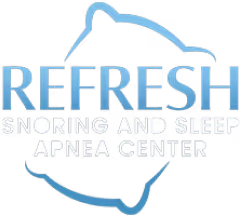Continuous Positive Airway Pressure (CPAP) therapy is what most people consider the primary treatment for sleep apnea. However, many patients find CPAP machines uncomfortable or difficult to use consistently, hence the need for CPAP alternatives.
Fortunately, several effective options have emerged, offering hope for those seeking better sleep without relying on CPAP. In this article, we'll explore the top three alternatives that can help improve your sleep quality and manage sleep apnea symptoms.
1. Oral Appliances
Obstructive sleep apnea (OSA) is a severe condition that can have serious adverse effects on one’s health. People living with OSA stop breathing repeatedly during sleep due to blocked airways.
This condition can cause daytime fatigue, difficulty concentrating, and other problems affecting your work, relationships, and safety. It also heightens the risk of severe health issues like heart attack, stroke, and high blood pressure.
Oral appliances, the best CPAP alternative, are more convenient for treating OSA. Mandibular advancement devices (MADs), the most common type, are custom-fitted mouthpieces designed to reposition the jaw and tongue during sleep.
These devices help open the airway by moving the lower jaw slightly forward, reducing snoring and sleep apnea episodes.
They’re small, easy to transport, and don't require electricity, making them ideal for travel. Compared to CPAP, they typically have fewer side effects. Users don’t have to suffer from dry mouth, nasal congestion, or skin irritation.
Some patients also find oral appliances more straightforward to use consistently throughout the night, making them a good option for those who struggle with CPAP compliance.
This CPAP machine alternative can be the first-line treatment for mild to moderate sleep apnea.
2. Myofunctional Therapy
It is a specialized treatment focusing on strengthening and retraining your mouth, tongue, face, and throat muscles. Similar to physical therapy for other body parts, it aims to improve the function of these muscles, particularly for breathing, swallowing, and speaking.
By strengthening the tongue and other oral muscles, myofunctional therapy can help prevent the airway from collapsing during sleep, a common cause of sleep apnea.
Correcting tongue posture, encouraging nasal breathing, and improving muscle tone can also reduce snoring and sleep apnea episodes. The therapy also helps correct poor breathing habits that may worsen sleep apnea.
It's important to understand that while this sleep apnea CPAP alternative holds promise for treating sleep apnea, it may not be effective for all cases, especially severe ones. Individual results can vary.
To determine if myofunctional therapy is right for you, consult a sleep specialist or healthcare provider.
They can thoroughly check your specific condition and offer the most appropriate treatment plan, whether it involves myofunctional therapy alone or in combination with other approaches.
3. Lifestyle Changes
While not a direct replacement for CPAP, incorporating lifestyle modifications can significantly alleviate sleep apnea symptoms for many individuals.
Weight loss, particularly around the neck, is crucial as excess weight can substantially contribute to airway obstruction during sleep.
Regular physical activity as an indirect CPAP alternative offers multiple benefits for individuals with sleep apnea. Beyond aiding in weight management, it strengthens the throat muscles, potentially improving sleep quality and reducing the severity of sleep apnea.
To further enhance sleep, it is recommended to avoid alcohol and sedatives. These substances relax the throat muscles, worsening sleep apnea symptoms.
A consistent sleep routine can also improve overall sleep, indirectly alleviating sleep apnea symptoms. Additionally, raising the head of your bed or side sleeping can help prevent airway collapse during sleep.
Lifestyle changes offer several advantages. They do not require specialized equipment, address the underlying causes of sleep apnea, and contribute to overall health and well-being.
Sometimes, these CPAP machine alternatives may even reduce or eliminate the need for other treatments.
However, it is essential to note that achieving noticeable improvements may take time and consistent effort. Moreover, for individuals with severe sleep apnea, lifestyle changes alone might not be sufficient, and additional therapies may be necessary.
Choose the Right Alternative With Us
Refresh Snoring and Sleep Apnea Center offers expert guidance on effective alternatives. Our team works exclusively with custom-fitted oral appliances that can provide relief without the hassle of masks or machines.
Our experts will help you navigate your options and find the perfect CPAP alternatives to ensure restful, rejuvenating sleep. Choose better sleep and improved health — reach out now!

.svg)




